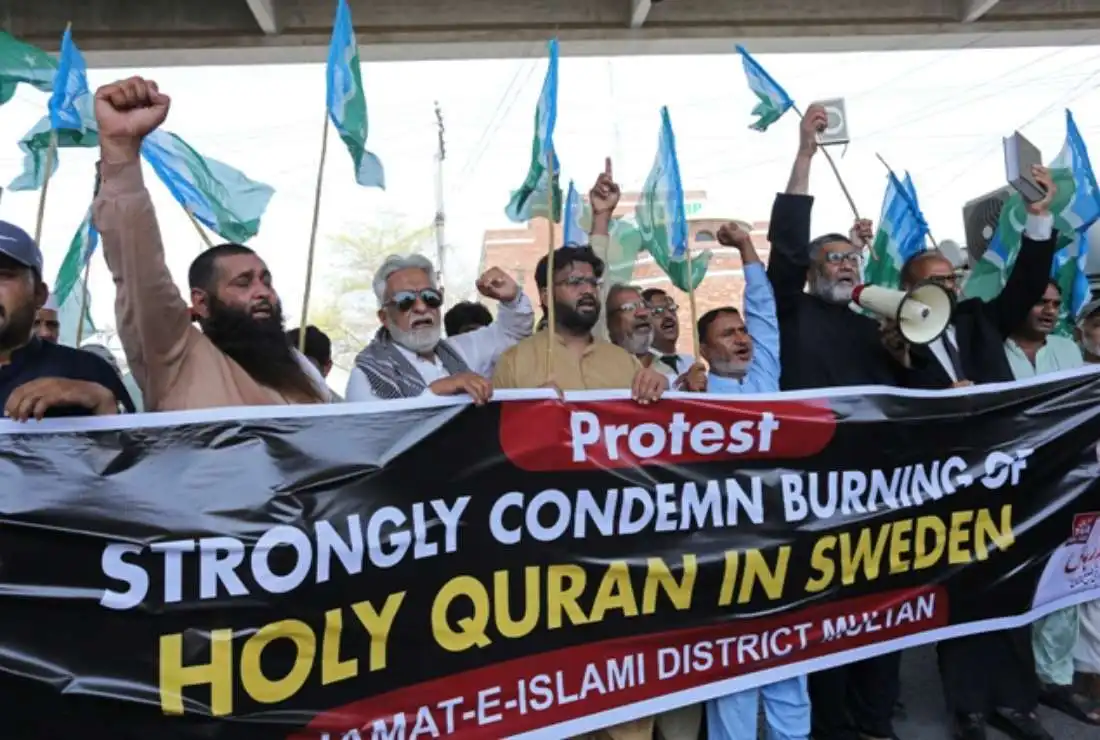
I wrote in my previous article - The Flames of the Future on July 1, 2023 - that Russia is wooing the nations who have suffered from Western colonialism and neo-colonialism after 1989 – the New World Order. It was marked by the triumph of capitalism over the communist ideology. Samuel Huntington’s The Clash of Civilisations in the Foreign Affairs magazine prognosticated a conflict between the West and Islam that manifested itself in the US invasion of Iraq in 1991, Bosnia-Herzegovina war in 1992, the invasion of Afghanistan in 2001 (and the subsequent War on Terror), the second invasion of Iraq in 2003, and then the invasion of Libya in 2011. All these wars occurred in Muslim countries. And while it happened, a certain vocabulary dominated the world media: fundamentalism, extremism, jihadism, primitivism, political-Islam, medieval Islam, and so on.
It would be fallacious to imagine that the West cared about the women’s welfare per se in Muslim countries. It was definitely something else – a self-serving agenda to find cheap labor for their multinationals operating in these societies, promoting individualism that helped promote consumerism – no, they just didn’t want to see you hijabless. There was more to it!
Ostensibly, freedom of speech remains a selective notion in the context of religious, ethnic, cultural, gender, and political issues.
The rape capital of the world, New Delhi, never became a global issue, but isolated examples of such acts in the Muslims societies have made world headlines. The genocide of Muslims in Indian Gujrat, though made global headlines, was never turned into a major issue, compared to the treatment of minorities in the Muslim societies. Women’s problems became a concern of international debate in the Muslim societies particularly – as if women in non-Muslim countries are totally safe. It would be fallacious to imagine that the West cared about the women’s welfare per se in Muslim countries. It was definitely something else – a self-serving agenda to find cheap labor for their multinationals operating in these societies, promoting individualism that helped promote consumerism – no, they just didn’t want to see you hijabless. There was more to it!
So, the projects to liberate the so-called primitive Muslim societies from the shackles of medieval Islam were indeed aimed at safeguarding the interests of the capitalist. Any voice against it would result in losing jobs, businesses, or the multinational establishment would simply stop funding the media house, publication, or film company, if they adopt a different ideology. That is how freedom of speech works – if you humbly succumb to speaking the language they approve of, you are good. The West has imposed this idea of free speech, fundamental rights, liberalism, individualism on the rest of the world – and all of these notions have served capitalism, willy-nilly.
The only way to remain unscathed is to be politically correct.
This is what the Russian president, Vladimir Putin, has clearly taken up in his anti-West discourse. As a manifestation of his discourse, he visited the 8th century Juma Mosque in Derbent, Dagestan on Eid-ul Ad’ha, after the burning of the Quran incident in Stockholm, Sweden. He was presented with a copy of the Quran upon his visit, where he condemned and criticised the Western idea of free speech that sanctions such heinous acts. On the contrary, he reiterated, that “in our country, this is a crime both according to the Constitution and the penal code.”
We have already established that the western discourse is guided by their own vested interests. They decide what is politically correct. Anything politically incorrect can invite trouble – bans, sanctions, labels, etc. And all that happens only in the Muslim societies. Countries with huge human rights violations – such as India and Israel – are exempt from the necessity of being politically correct.
Pakistan and the rest of the Islamic world resort to their usual course after the incident.
An OIC emergency session has been called. All Muslim countries have summoned the Swedish ambassadors in their capitals, lodged protests, and demanded punishment for the culprit. In Pakistan, the Prime Minister, Shahbaz Sharif, called for a nationwide protest on Friday (7 July, 2023) to demonstrate to the world how angry we feel about it. That is very good. But does it help solve the problem? Does it, or anything like that, guarantee that such incidents will never occur in the future?
We have already established that the western discourse is guided by their own vested interests. They decide what is politically correct. Anything politically incorrect can invite trouble – bans, sanctions, labels, etc. And all that happens only in the Muslim societies. Countries with huge human rights violations – such as India and Israel – are exempt from the necessity of being politically correct. India can keep Kashmir under lockdown forever, can discriminate against their Muslim population, can have a rape capital of the world, but the West has their business interests with them – India is a big market – so they can do what they like. Israel can bomb the civilian population. But that is a US stronghold in the strategic, oil-rich, Middle East – so they can do what they like.
Anti-Semitic literature is hate-speech, ridiculing Islam is free speech. That’s how it looks.
Either, in Shakespeare’s words, we continue to bear ‘The slings and arrows of outrageous fortune, / Or to take arms against a sea of troubles, / And by opposing end them?’ But to do so, we need to reimagine our societies, rethink our preferences, recalibrate our ideologies, revisit clichéd ideas, and examine our readiness to fall for anything that the West pours on us. We need to promote our own culture, feel good about it, and learn to live it with confidence and pride. Once we begin to respect ourselves, the world will start respecting our scared things too.
It is doable. Only if we have a will do so.

